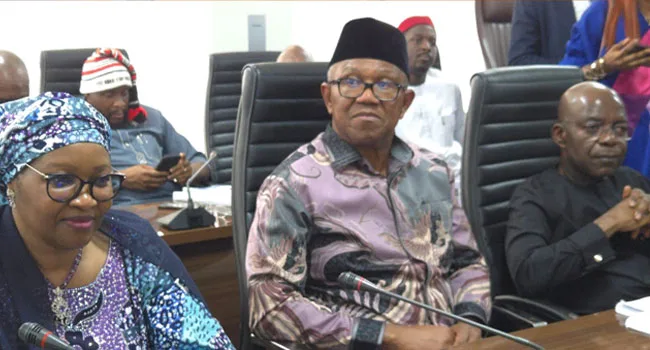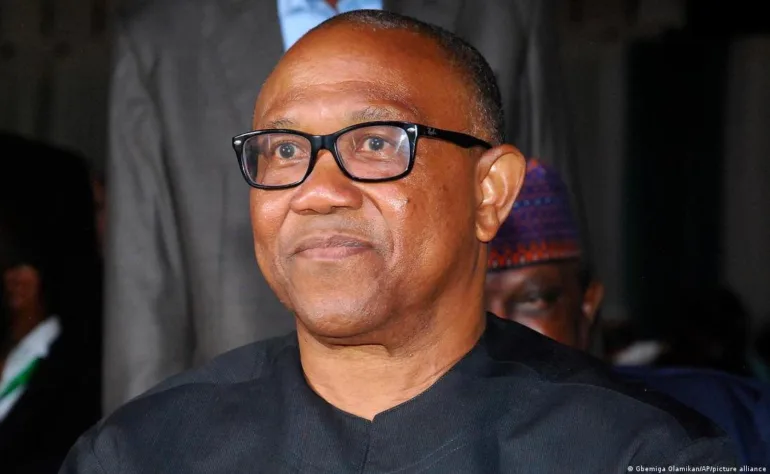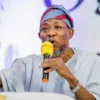The presidential candidate of the Labour Party in the 2023 general election, Peter Obi, has raised alarm over Nigeria’s worsening economic and social conditions, urging opposition voices to unite in challenging bad governance.
Speaking at the Labour Party’s National Executive Council (NEC) meeting held Wednesday at the Transcorp Hilton Hotel in Abuja, Obi decried the deepening poverty and hardship across the country, calling on party members to be bold in confronting the country’s challenges.
“Nigeria is collapsing. The numbers and indices are clear. More and more people are falling into poverty. People who used to live comfortably are now begging,” Obi said. “Even here in this hotel, I see people telling me, ‘Oga, I came to Abuja and can’t afford to return.’ Where I used to go and be asked, ‘Will you eat? Will you drink?’ — nobody asks me anymore. That shows you how bad things have become.”
He emphasized the need for the Labour Party to set an example by upholding integrity and pushing for reforms that serve the people. “Let us know that things are difficult, things are bad. Let us stand together and ensure that the right things — starting from our party — are done,” he said.
The NEC meeting, chaired by former Finance Minister Senator Nenadi Usman, was convened amidst ongoing leadership disputes within the party following a recent Supreme Court ruling.
In attendance were key Labour Party figures including Peter Obi’s 2023 running mate, Datti Baba-Ahmed, Abia State Governor Alex Otti, as well as party senators and members of the House of Representatives.

Following the meeting, party leaders led a march to the headquarters of the Independent National Electoral Commission (INEC), where they demanded recognition of Senator Nenadi Usman as the legitimate national chairperson of the Labour Party.
The delegation, which included Obi and Governor Otti, was received by INEC National Commissioner, Sam Olumekun. Their visit came in the wake of a Supreme Court ruling which nullified a lower court’s recognition of Julius Abure as the party’s national chairman.
In a unanimous decision, a five-member panel of the apex court ruled that the Court of Appeal lacked jurisdiction to decide the Labour Party’s internal leadership matters, stating that such issues fall outside the purview of the judiciary. The court noted that Abure’s tenure had already expired and upheld an appeal filed by Senator Usman and another party stakeholder, while dismissing a cross-appeal by the Abure-led faction.
With the Supreme Court judgment shifting the leadership balance, the Labour Party now looks to consolidate its position ahead of future elections and national engagements.


